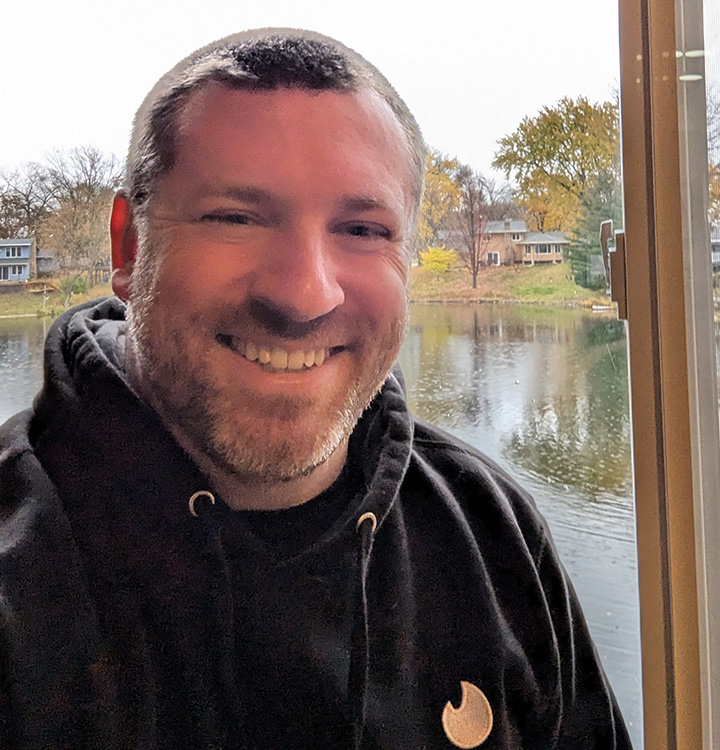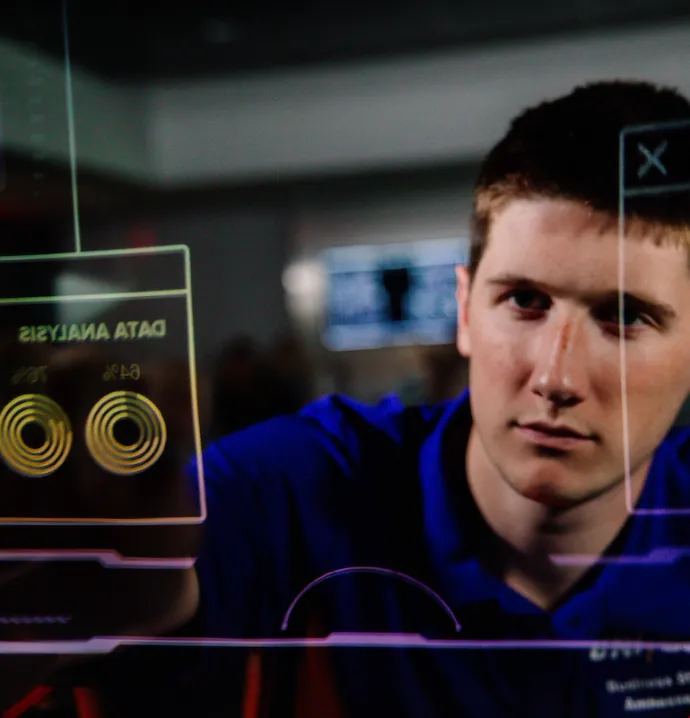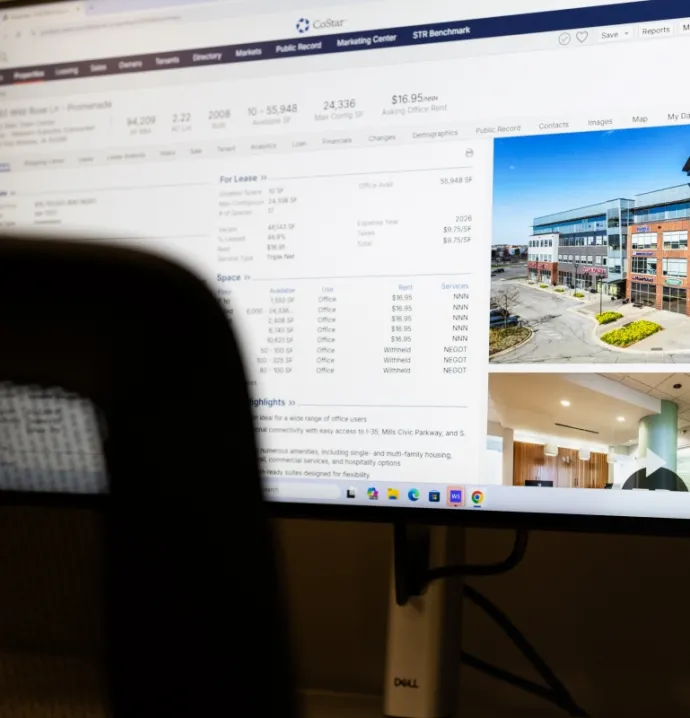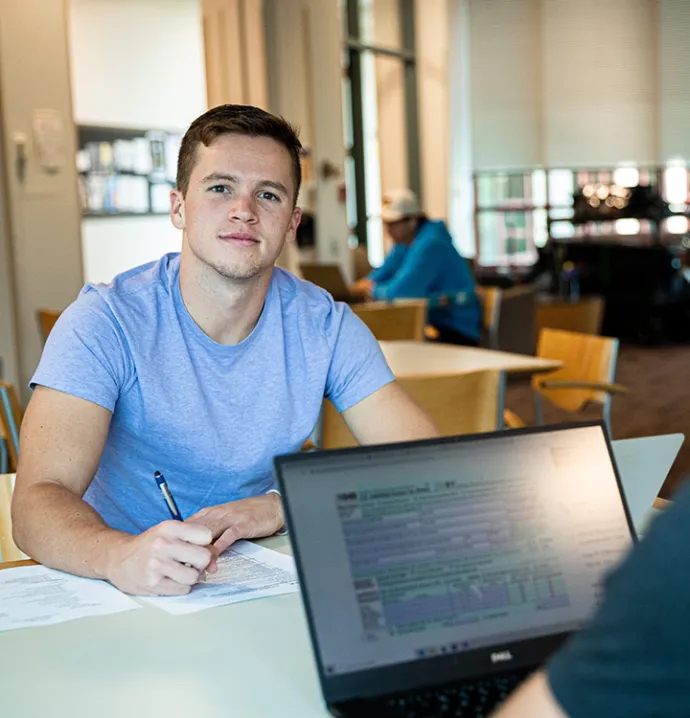From UNI to Tinder: How one alum is using data to shape decisions
From UNI to Tinder: How one alum is using data to shape decisions
Sam Krutzfeldt’s (‘10) biggest project at work this year was the 2024 Summer Olympics. No, he doesn’t work for NBC, which televised the event in the United States. He wasn’t even working for one of the Olympic sponsors.
He’s a marketing data scientist for the dating app Tinder. He evaluated the Passport feature in the app, helping measure Tinder’s usage in and around Paris during the Olympics. That data was used by the company’s communications team to generate positive press around the world.
This is just one of the many unique projects he’s been involved in with the company, where he assembles marketing data for Europe, the Middle East and Africa.
“Before I actually worked here [at Tinder], I never used the app myself,” Krutzfeldt said with a laugh, reflecting on his career journey. “Working with the communications team is definitely a fun part of the job.”
An Oskaloosa native, Krutzfeldt originally majored in English at the University of Northern Iowa. But after being inspired by the economics book “Freakonomics,” he switched to a double major in economics and human resource management. He always loved data, describing the first time he learned about machine learning and linear regression as a life-altering experience.
“The idea of being able to predict something was fascinating to me,” Krutzfeldt said.
After graduating, Krutzfeldt embarked on an interesting career journey in data analytics. His first job was as a marketing analysis coordinator at Yellowbook. He later worked at Thomson Reuters, where he concurrently earned a master’s degree in predictive analytics, then at an advertising agency, a health insurance company, and in the medical equipment field before being referred to a job at Tinder in 2022..

In addition to his project with the Olympics, another favorite project for Krutzfeldt is pulling and analyzing data to help create the “Year in Swipe,” an annual report highlighting user trends, such as the number of swipes or popular content.
Throughout his many career stops, Krutzfeldt said his education at UNI was essential.

There were a lot of times, especially early in my career, when I remembered stuff I learned from school. A lot of that came from professors and visiting alumni—things like being OK with being uncomfortable, learning when you’re wrong, and being OK with always learning.
He also credits UNI for much of his professional network, which has led to numerous job opportunities.
For those interested in data science, Krutzfeldt recommends taking advantage of the many resources at UNI and “learning things the hard way,” he said. With the rise of generative AI like ChatGPT, it can be easy to take shortcuts. But in the data science field, it’s essential to understand the fundamentals.
“I definitely use it to answer questions about things like formatting or algorithms, but you can’t expect it to just give you an answer that you’ll retain,” Krutzfeldt said. “You’ll have to do things the hard way. So, make sure you know your fundamentals, so to speak.”




